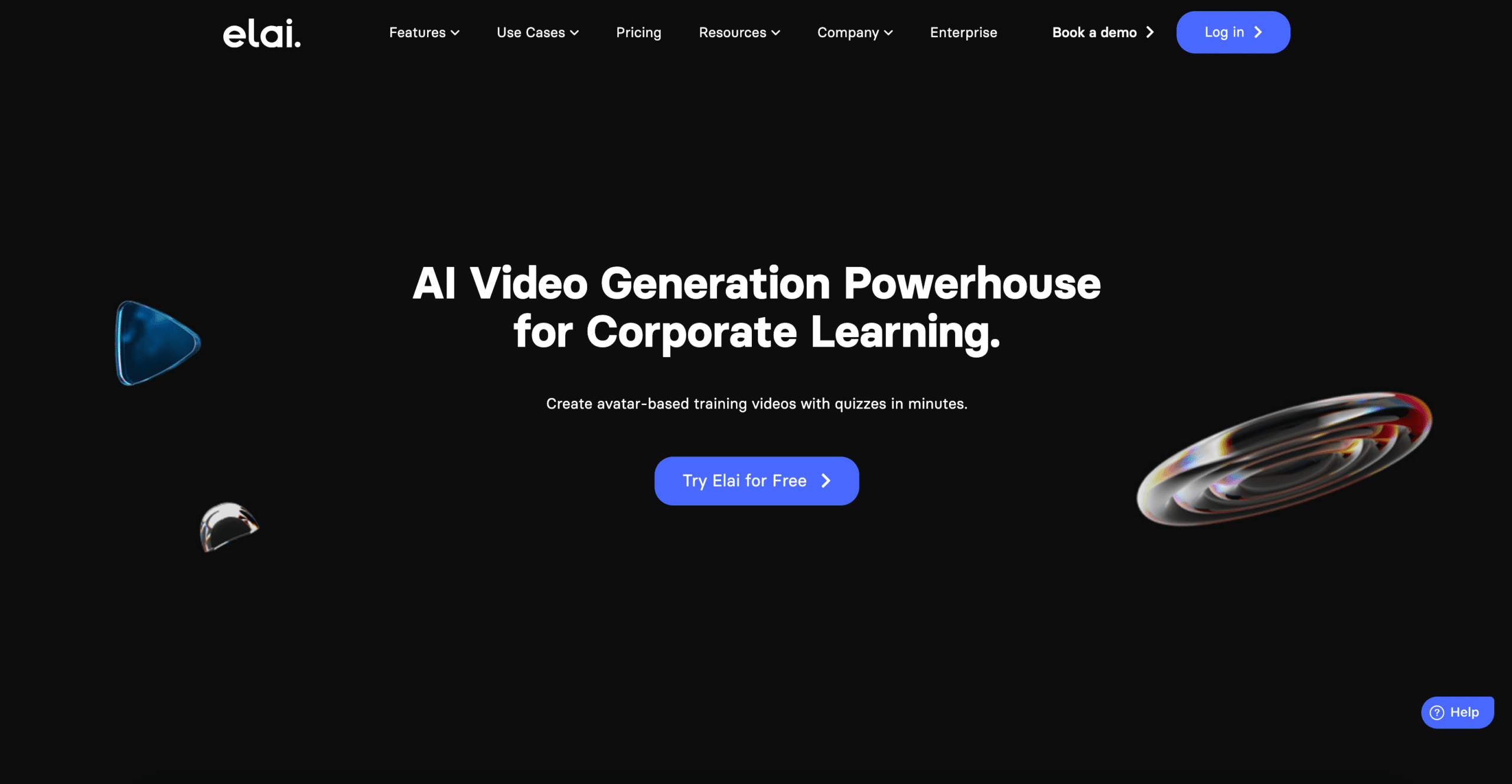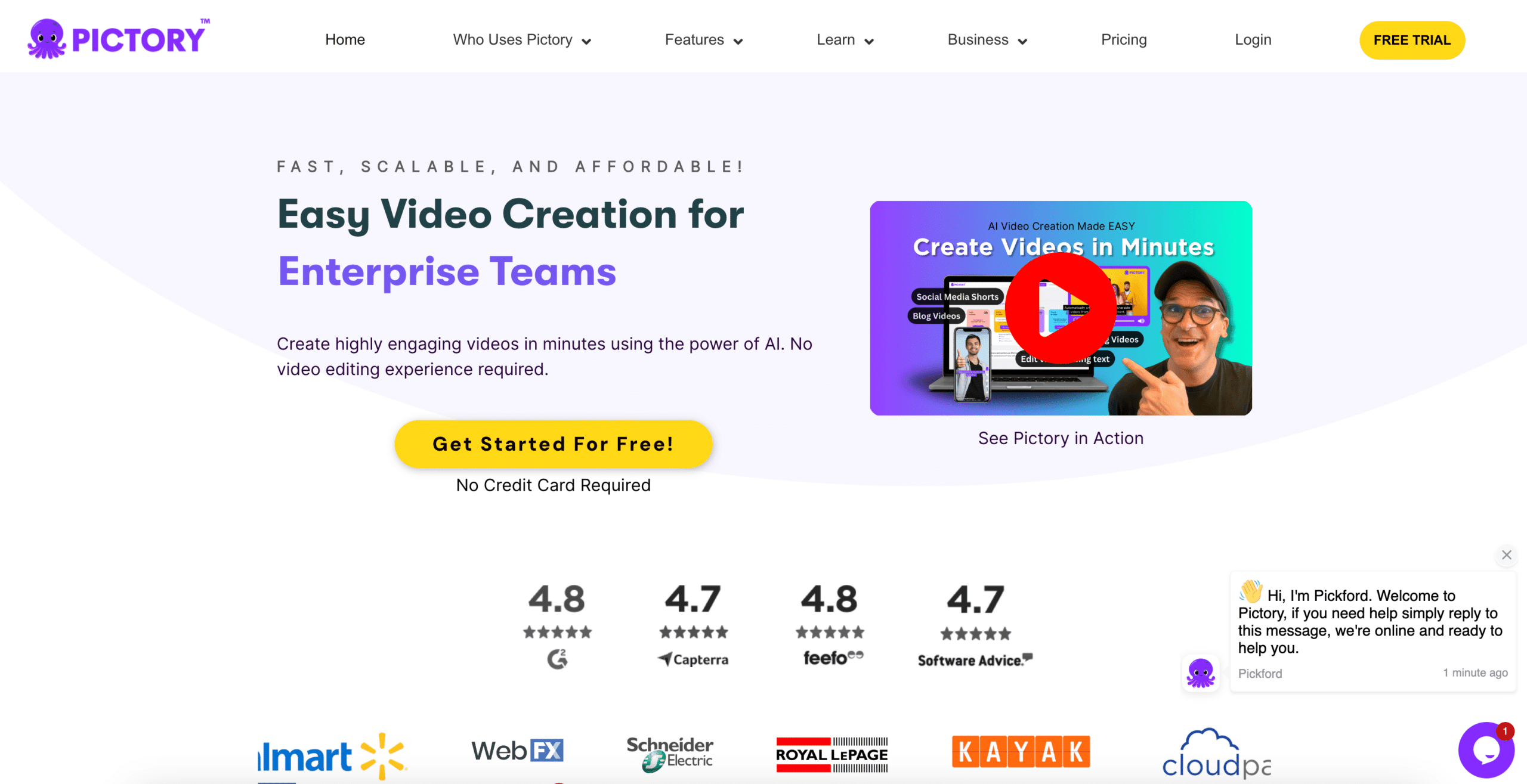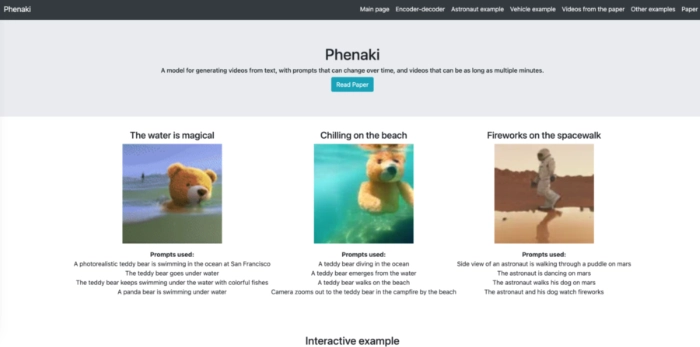Vous pensiez que la génération automatisée de vidéos était impossible ? Constatez par vous-même ! L’utilisation de l’intelligence artificielle (IA) dans la génération de vidéos est devenue le facteur déclencheur de son succès. Il est désormais possible de créer des vidéos de grande qualité et d’un certain réalisme.
Nous allons découvrir dans cet article les 10 meilleurs générateurs de vidéos avec IA en 2024. Nous nous plongerons dans le genre de vidéos qui peuvent être créées avec l’IA et les progrès qui peuvent encore être réalisés. Nous verrons si les générateurs de vidéos avec IA sont au niveau des générateurs de texte ou d’images.
Soyons clairs, l’IA n’en est pas encore au point de pouvoir remplacer totalement la créativité et les compétences humaines en matière de création de vidéos. Pour des vidéos vraiment professionnelles et de hautes qualités, il est préférable d’engager un motion designer freelance qui pourra apporter son expertise et son sens artistique au projet.
Les outils de cet article ont été sélectionnés par notre équipe et ne sont pas sponsorisés. Découvrez comment sponsoriser votre outil.
7 générateurs de vidéos qui fonctionnent grâce à l’IA
1. Synthesia : l’atelier complet de synthèse d’avatars

Synthesia est un créateur de vidéos IA qui utilise des algorithmes avancés de traitement du langage naturel (NLP) et d’apprentissage automatique pour créer des vidéos de haute qualité à partir de textes dans plus de 50 langues, sans acteurs, caméras ou micros.
Ce générateur AI de texte à vidéo peut analyser le contenu de vos articles de blog, de vos articles d’actualité et de vos pages Web pour générer des vidéos pertinentes et attrayantes.
Tout ce que vous avez à faire est de vous inscrire, de choisir votre avatar d’IA parmi plus de 40 options ou de créer le vôtre et de rédiger votre script. Téléchargez ensuite vos vidéos d’avatars parlants générés par l’IA après quelques minutes.
2. Sora : l’IA d’OpenAI

Sora est une IA développée par OpenAI, capable de comprendre, d’apprendre et de répondre à une demande afin de créer des vidéos de très haute qualité, présentant de moins en moins de défauts visuels.
Sora peut créer des vidéos d’une durée maximale de 60 secondes présentant des scènes complexes avec plusieurs personnages, des types de mouvements spécifiques et des détails précis sur le sujet et l’arrière-plan. Le modèle comprend non seulement ce que l’utilisateur a demandé dans le prompt, mais aussi comment ces choses existent dans le monde physique.
Avec Sora, la génération de vidéo par IA passera la seconde et deviendra le prochain outil de tous les marketeurs.
3. Fliki : faites dialoguer plusieurs personnages

Fliki est un outil puissant qui vous permet de transformer facilement du texte en vidéos et en contenu audio en utilisant des voix d’IA. En quelques clics, vous pouvez créer des voix off réalistes pour des vidéos.
L’une des caractéristiques les plus importantes de Fliki est sa capacité à créer des scripts avec l’IA. Cela permet de choisir facilement une voix et d’ajouter votre texte. Des conversations réalistes entre plusieurs personnages peuvent même être générées.
Avec Fliki, vous pouvez créer des scripts d’intro et d’outro pour des podcasts avec de la musique et des voix, et même créer différentes lectures publicitaires à insérer dans vos épisodes.
4. Elai.io : la génération vidéo à grande échelle

Elai.io change la donne en matière de création de films AI personnalisés. Avec une fonction de commande vocale et plus de 40 options de traduction, la plateforme vous permet de créer du contenu dans votre langue préférée et de toucher un public international.
Grâce à la possibilité d’éditer votre vidéo avec des fonctions telles que la superposition de texte, la superposition de marque et des outils audio, la plateforme fait passer votre création de contenu au niveau professionnel supérieur. Les fonctions de partage social et de collaboration en font un outil de coproduction efficace.
5. Lumen5 : vous rédigez le texte, l’appli en fait une histoire

Lumen5 est un outil de création de vidéos qui vous aide à transformer du contenu en histoires visuelles captivantes pour le marketing et la sensibilisation à la marque. Il est très simple à utiliser ; tout ce dont vous avez besoin est un script, et il fait le reste.
Il trouve des mises en page qui correspondent parfaitement à ce que vous avez écrit et les superpose sur un fond à l’esthétisme convaincant.
6. Pictory : spécialisé dans la génération vidéo pour médias sociaux

Pictory est un outil qui vous permet de convertir facilement du contenu vidéo ou textuel long en vidéos courtes et partageables pour les médias sociaux.
Grâce à Pictory, vous pouvez gagner du temps dans la création de vidéos, accroître la visibilité de votre entreprise et réduire considérablement la charge que représente le maintien d’une présence active sur les médias sociaux.
7. Rephrase.ai : pour personnaliser des vidéos destinées à une large diffusion

Le produit “Vidéos personnalisées” de Rephrase autorise la création une personnalisation ultime de votre e-marketing. Vous rédigez n’importe quel texte, et il le transforme en une annonce d’un acteur virtuel réaliste.
Il peut d’ailleurs être votre clone. Vous pouvez créer vos propres modèles utilisant des “merge tags”. Ce sont des champs variables qui s’adaptent aux spécificités de votre utilisateur, comme son nom, par exemple. Les acteurs virtuels parlent et agissent de manière très humaine.
3 générateurs de vidéos grâce à l’IA pour des créations 100% originales
Ces outils permettent de créer des vidéos avec un scénario. Ils sont encore en cours de développement et pas encore disponibles pour le grand public.
8. Make a Video par Meta AI : le grand précurseur du domaine

Make-A-Video de Meta est un système d’IA révolutionnaire qui peut générer de nouvelles vidéos à partir de textes, d’images ou de vidéos.
Il s’agit d’un perfectionnement du système “Make-a-Scene”, qui peut générer des images à partir de croquis et de descriptions textuelles. Le nouveau système est entraîné sur des données vidéo non étiquetées, ce qui réduit les frais d’entraînement et permet au système de comprendre comment les objets individuels se présentent et sont désignés.
Le système est entraîné sur des ensembles de données d’images et de vidéos accessibles au public et peut être utilisé pour créer des vidéos à des fins diverses.
9. Google AI : Imagen travaille en très haute résolution

Imagen Video de Google est un mode d’IA texte-vidéo capable de produire des vidéos 1280×768 à 24 images par seconde à partir d’une invite écrite.
Le système est actuellement dans sa phase de recherche, mais son développement rapide souligne le potentiel des modèles de synthèse vidéo. Le système comprend plusieurs capacités stylistiques notables, telles que la génération de vidéos basées sur des peintres célèbres et le rendu de texte dans une variété de styles d’animation.
Google espère ainsi que les modèles de synthèse vidéo à usage général pourront réduire considérablement la difficulté de la génération de contenu de haute qualité.
10. Phenaki : la révolution à venir ?

Phenaki est un modèle d’IA capable de générer des minutes de vidéo cohérente à partir d’un texte détaillé et séquentiel.
Les auteurs du modèle sont anonymes, car leurs travaux sont encore en cours d’examen par la conférence sur l’IA International Conference on Learning Representations (ICLR). Toutefois, les auteurs ont révélé que le modèle a été entraîné avec divers ensembles de données, qui ne font pas l’impasse sur des contenus violents et pornographiques.
L’équipe est préoccupée par les implications éthiques du modèle. Sa publication sera liée à la mesure des biais dont souffrent les vidéos générées.
Quel type de vidéos peut-on créer avec l’IA ?
L’intelligence artificielle (IA) a la capacité de créer un large éventail de vidéos, notamment des courts métrages, des animations, des effets spéciaux et même des films en direct.
L’une des applications les plus populaires de l’IA dans la génération de vidéos est la création d’images générées par ordinateur (CGI) qui sont utilisées dans les films, les jeux vidéo et d’autres formes de divertissement.
L’IA peut également être utilisée pour créer des animations réalistes, comme celles utilisées dans les dessins animés, ainsi que des effets spéciaux pour les films d’action. En outre, l’IA peut être utilisée pour créer des vidéos destinées aux entreprises, telles que des démonstrations de produits, des présentations d’entreprises et des vidéos explicatives.
L’IA peut également être utilisée pour créer des vidéos pour les plateformes de médias sociaux, pour créer des vidéos à des fins éducatives et didactiques, pour créer des vidéos pour le secteur de la publicité, etc. Avec l’aide de l’IA, il est désormais possible de créer des vidéos d’une grande qualité et d’un grand réalisme.
Quels progrès l’IA peut-elle encore faire dans la création de vidéos ?
À l’heure actuelle, les générateurs vidéo d’IA ont la capacité de créer des vidéos réalistes et de haute qualité, mais des améliorations sont encore possibles.
L’un des domaines dans lesquels l’IA peut s’améliorer est la capacité à générer des mouvements humains et des expressions faciales plus naturels et réalistes. En outre, l’IA peut être entraînée à comprendre et à interpréter les émotions des personnages dans la vidéo, ce qui permettrait de créer des vidéos plus réalistes et plus attrayantes.
Un autre domaine dans lequel l’IA peut s’améliorer est la capacité à générer des environnements plus réalistes et variés.
Actuellement, l’IA est capable de générer un nombre limité d’environnements, mais avec de nouvelles avancées, elle sera en mesure de créer un large éventail d’environnements, y compris ceux qui ne sont pas possibles actuellement.
L’IA peut également être entraînée à comprendre l’intention du créateur de la vidéo et à fournir des suggestions pour la vidéo elle-même.
Elle peut être entraînée à comprendre le type de public, le message de la vidéo, la réponse émotionnelle souhaitée, etc. Cela aidera les créateurs de vidéos à créer des vidéos plus percutantes et plus attrayantes.
Les générateurs de vidéos avec IA sont-ils au niveau des générateurs de texte ou d’images ?
Si les générateurs vidéo avec IA sont capables de créer des vidéos réalistes et de haute qualité, ils ne sont pas encore au niveau des générateurs de texte ou d’images.
Les générateurs de texte, tels que GPT-3, ont la capacité de comprendre et d’interpréter le langage humain et peuvent générer des textes qui ne peuvent être distingués de ceux écrits par un humain. Les générateurs d’images, tels que DALL-E, peuvent générer des images très détaillées et réalistes.
En revanche, les générateurs vidéo d’IA sont encore limités dans leur capacité à comprendre et à interpréter le langage et les émotions humaines.
En outre, bien que les générateurs de vidéos d’IA puissent créer des vidéos réalistes, ils ne sont pas encore en mesure de créer des vidéos qui ne se distinguent pas de celles créées par un humain.
De plus, les générateurs de vidéo par IA ne sont pas en mesure de comprendre le contexte et le message de la vidéo, ainsi que la réaction émotionnelle qu’elle doit susciter.
Dans l’ensemble, bien que les générateurs vidéo d’IA aient fait des progrès considérables ces dernières années, ils ont encore un long chemin à parcourir avant de pouvoir égaler les capacités des générateurs de texte et d’images.
Notre astuce pour créer des vidéos avec l’IA
Si les générateurs de vidéos d’IA sont un outil utile pour créer des vidéos, ils ont leurs limites. Pour des vidéos vraiment exceptionnelles, il est préférable de travailler avec un monteur vidéo freelance qui pourra apporter son expertise et son sens artistique au projet.
L’IA offre des solutions limitées qui ne vaudront jamais la production d’un vrai monteur vidéo ou d’un professionnel de la vidéo.









